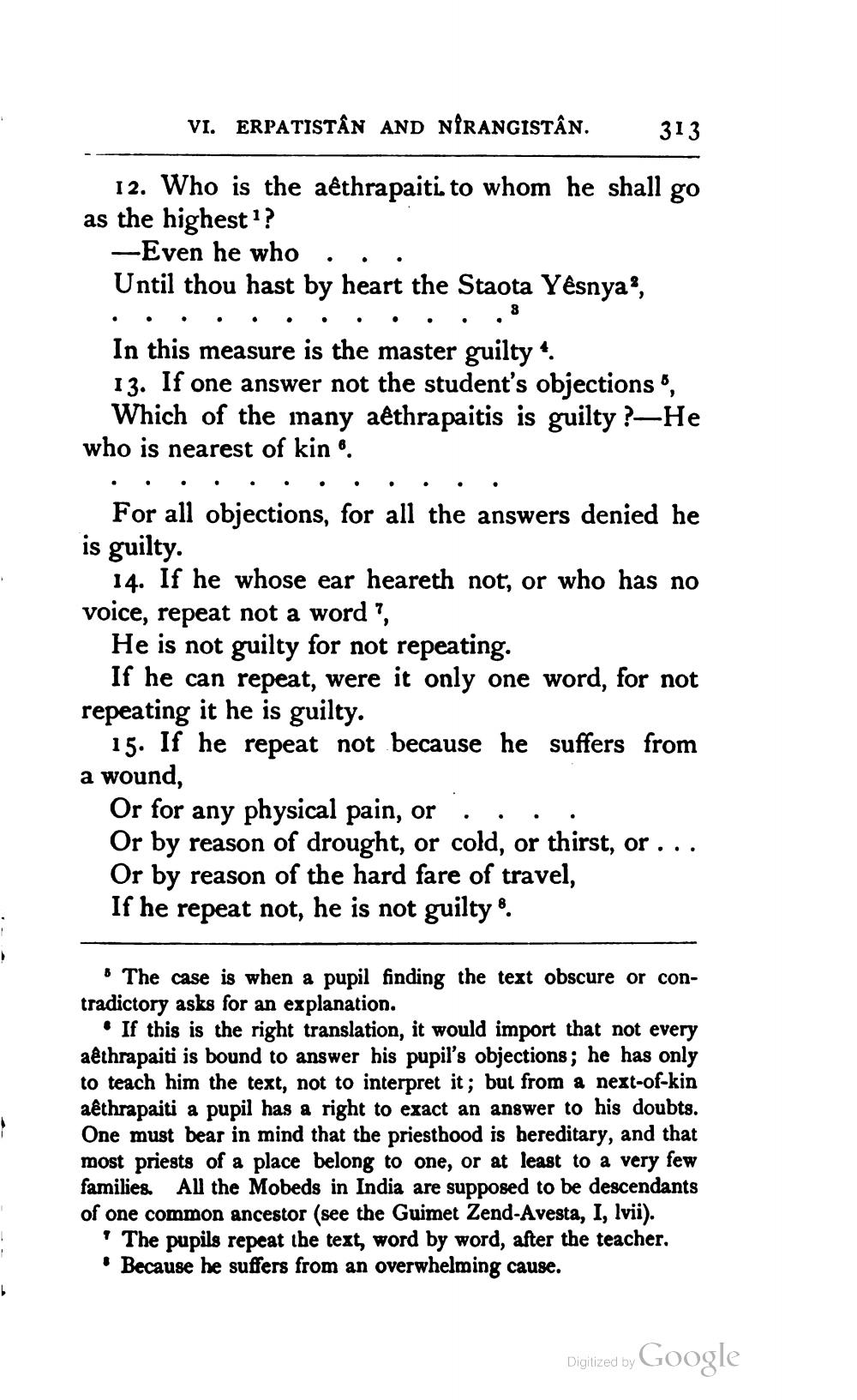________________
VI. ERPATISTÂN AND NÍRANGISTÂN. - 313
12. Who is the aêthrapaiti to whom he shall go as the highest 1?
-Even he who ... Until thou hast by heart the Staota Yêsnya, · · · · · · · · · · · · In this measure is the master guilty 13. If one answer not the student's objections,
Which of the many aệthrapaitis is guilty ?-He who is nearest of kin 6.
For all objections, for all the answers denied he is guilty.
14. If he whose ear heareth not, or who has no voice, repeat not a word ?, He is not guilty for not repeating.
If he can repeat, were it only one word, for not repeating it he is guilty.
15. If he repeat not because he suffers from a wound,
Or for any physical pain, or .... Or by reason of drought, or cold, or thirst, or ... Or by reason of the hard fare of travel, If he repeat not, he is not guilty ®.
The case is when a pupil finding the text obscure or contradictory asks for an explanation.
• If this is the right translation, it would import that not every aethrapaiti is bound to answer his pupil's objections; he has only to teach him the text, not to interpret it; but from a next-of-kin aệthrapaiti a pupil has a right to exact an answer to his doubts. One must bear in mind that the priesthood is hereditary, and that most priests of a place belong to one, or at least to a very few families. All the Mobeds in India are supposed to be descendants of one common ancestor (see the Guimet Zend-Avesta, I, lvii).
'The pupils repeat the text, word by word, after the teacher. · Because he suffers from an overwhelming cause.
Digitized by Google




